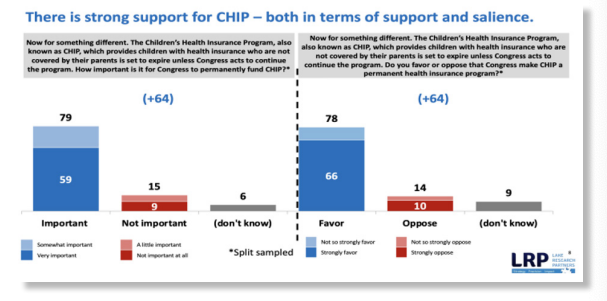For almost 25 years, the Children’s Health Insurance Program (CHIP) has been an essential source of children’s coverage, ensuring access to high-quality, affordable, pediatric-appropriate health care for children in working families whose parents earn too much to qualify for Medicaid but too little to purchase private health insurance on their own.
CHIP has played a critical role in reducing the number of uninsured children by more than 68 percent, from an uninsurance rate of nearly 15 percent in 1997 to less than five percent in 2016, while improving health outcomes and access to care for children and pregnant women. CHIP, together with Medicaid, plays a particularly important role for children of color: in 2021, more than half of Black, American Indian or Alaska Native, and Hispanic children relied on Medicaid and CHIP as their source of health coverage.
Making CHIP permanent stops the unfair treatment of children’s health coverage
Although the Consolidated Appropriations Act, 2023 extended CHIP for an additional two years, until FY 2029, the program remains the only federal insurance program that is temporary and continuously needs to be extended. For example, Medicare, TRICARE, and the Federal Employee Health Benefit Program (FEHBP) are not subject to periodic reauthorization. Like we do for our elderly, military families, and public servants, the United States must treat kids fairly by ensuring they have stable coverage, rather than subjecting it to the uncertainty and risk of funding cliffs that come with CHIP reauthorizations.
CHIP has repeatedly been threatened
In recent funding cycles, CHIP has been threatened, held hostage, and used as a bargaining chip for other policies that had nothing to do with children. It’s been vetoed twice and unfunded for four months — leading families across the country to receive disenrollment notices. CHIP should never be threatened again.
CHIP must be permanently funded now to avoid fiscal cliff
The CHIP funding baseline is critical for extending the program. To calculate the baseline for programs like CHIP in the out-years, the Congressional Budget Office (CBO) uses the final year of spending for the program to project future funding levels. Due to accounting gimmicks in past CHIP extensions, the out-year baseline in FY 2029 that CBO will use to project future costs will be woefully inadequate to fund the true costs of the program going forward. It is critical to make CHIP funding permanent now to avoid this fiscal cliff in the out-years that threatens the future existence of the program.
Current events call for permanent CHIP funding
The end of the COVID-19 Public Health Emergency (PHE) means millions of children are at risk of losing coverage. Children deserve and need their health coverage to be stable, secure and dependable.
Making CHIP permanent is extremely popular
Lake Research did a poll in May 2022 that found the public strongly favors
making CHIP permanent (78% to 14%). In focus groups, people cannot believe that
the program is not permanent and express deep concern that it could expire. The
Lake Research Partners poll asked voters how important (salience) CHIP
permanency was to them, and the majority responded it was important (79% to
15%).

Across party identification, voters favor making CHIP a permanent health insurance program – Democrats (94% to 2%), Independents (78% to 13%), and Republicans (60% to 26%). Women favor making CHIP permanent by an 83% to 7% margin and men do so at 72% to 21%. By wide margins, white (76% to 15%), Black (90% to 6%), and Hispanic (83% to 11%) likely voters favor making CHIP permanent.
For questions, please contact Abuko D. Estrada, J.D., Vice President, Medicaid and Child Health Policy, at abukoe@wordpressmu-1207585-4417844.cloudwaysapps.com.